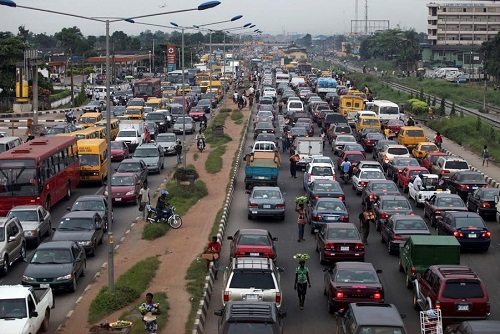Reuters photo
By
Gloria Nakiyimba
Authorities in the Ugandan capital Kampala are planning to introduce cable cars to address the massive traffic jam experienced on a daily basis and ease the movement of people to various parts of the city.
Kampala Capital City Authority is looking for 200 million US Dollars to embark on a pilot project.
“We conducted a feasibility study for cable cars in Kampala and discovered it is viable and so we are looking for money to run a pilot project. We are actually very composed and think it is something that can happen in Kampala,” KCCA spokesperson Peter Kauju told this reporter.
Kauju says under the pilot project, cable cars will run from the suburb of Bwaise in Kawempe division to the new taxi park in the central business area.
“We are making preparations for an investors’ conference to see how we can come up with the financing method or possibility for this project to happen,” Kauju said.
The conference is set to take place in September in Kampala.
“For us to realize that pilot success, we need between 100- 200 million US dollars,” he stated.
Several international companies that can provide the service have been contacted by KCCA.
The French company POMA, experts in ropeway transport, have been in talks with the authorities in Kampala over the possibility of introducing cable cars in the city as the best solution to transportation without creating congestion.
Medhi Caillis, the commercial officer for the Africa zone says using high technology, 5,000 people can be transported per hour using a cable transport system that is very fast in terms of speed.
Depending on the size of the cabin and speed, the car can take between 6-12 people every 10-15 seconds. The system, once put in place, would not have any conflict with other traffic users since it is installed high above ground.
Cable cars are popular tourist means of transport in the city of Grenoble in the Auvergne Rhone Alps region in Southern France. These round gondola lifts with clear glass sides give one a bird’s eye view of the city.
And a ride on the cars could turn into a revenue generating activity for the country’s tourism because they would offer tourists a clear view of the city built on seven hills from the sky.
According to Caillis, cable cars give a high level of passenger safety, they do not emit fumes, use clean electricity contributing little to air pollution, operate in a quiet manner saving the public from noise pollution and can serve the challenging terrain. To have cable cars running little land is required and there is no need to excavate the ground.
Cable systems can be installed within 12-18 months making it cheaper since they require less time and money to implement.
However much as cable cars provide a high quality transport experience, they don’t serve as many passengers as a bus or taxi would, or better yet a train. A cable car service could be disrupted due to bad weathe,r especially extreme winds, since they are pulled by cables that are elevated from one tower to another.
The company cable cars are responsible for transporting 6.5 million passengers per hour in different cities where POMA ropeways enjoy a worldwide presence.
Gloria Nakiyimba
Gloria has experience spanning more than five years in Journalism, particularly in field reporting, editing, newscasting and management. She is currently working with Capital Radio Limited [91.3 Capital FM and 96.3 Beat FM] as Head of News, a position she has held since 2010.
Gloria previously worked as the Kampala Correspondent for Radio France International [RFI] generating local story leads with international inference for RFI’s global audience. She also served as Political Editor for The Weekly Mail Newspaper as well as Online Content Editor for the California based Ugandan broadcaster KubutakaRadio.com.



No Comments Yet!
You can be first to comment this post!